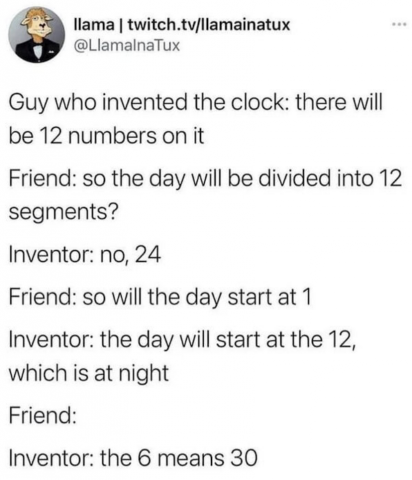In the timekeeping excerpt written by Johanna Drucker, the concept of time as subjective became stuck to me because it is interesting how rigid time is set to be perceived while how malleable and ever-changing it seems from the human perspective (e.g. waiting in line for food when you’re hungry makes it seem like time passes very slowly). On another note, I know a close family friend who has a leap year birthday on February 29th so I’ve always had the misconception that leap years would happen every 4 years and was surprised to find out that this is actually false.
Category: 02-TimeResearch
bumble_b-TimeResearch
I personally find myself drawn to clocks/methods of timekeeping that evoke senses other than sight (which, for me, is how I normally get time, like by looking at a clock or my phone). For example, reading about the incense clocks on the timekeeping wiki really piqued my interest! I don’t think I’ve ever heard of timekeeping by smell. I’ve always loved cuckoo clocks for the same reason (plus the fact that I love quirky, motored trinkets).
Also! The wiki page touches on something called Astrolabes made in Persia, specifically in Esfahan (which, if you can tell by my last name, is where my family is from)!
In the history of timekeeping video, the narrator mentioned timekeeping used by churches to tell people when to come to service. This reminded me of one of my favorite things in the world – the Islamic call to prayer “azaan” which plays really loudly from mosques (so you can also hear from your home) in Iran whenever it’s time to pray. It’s this beautiful and comforting melody, and I always love hearing it everyday whenever I visit Iran. If you think about it, it’s a way of keeping time based on an activity, similar to the customizable clock we talked about in class.
Also, here’s a relevant meme just for fun:

